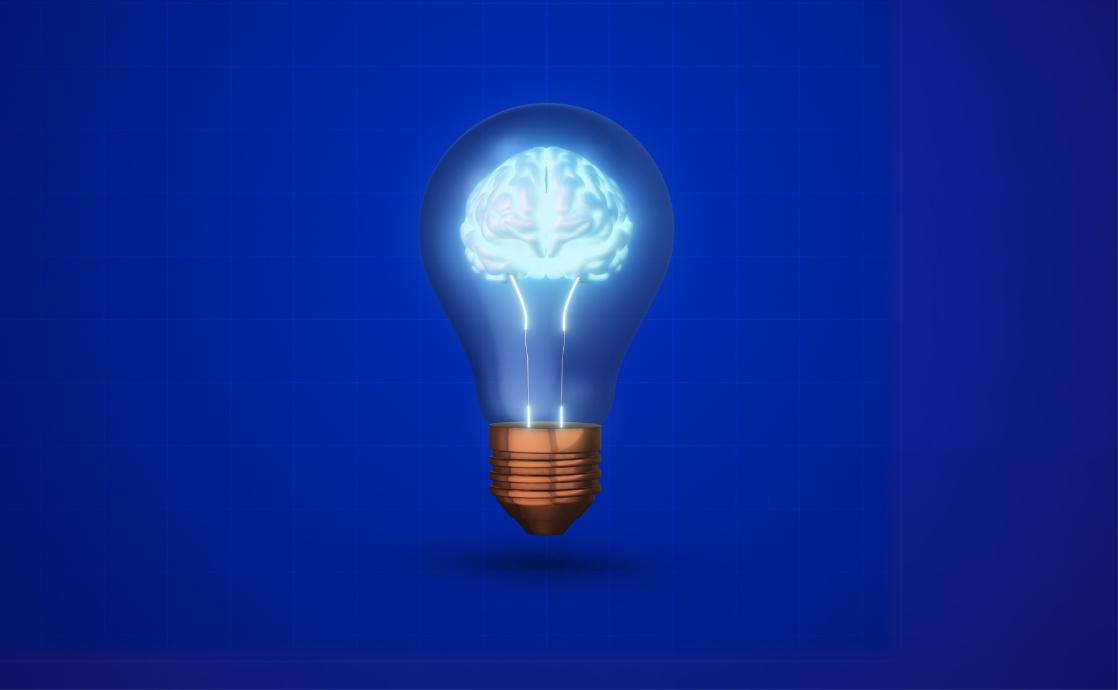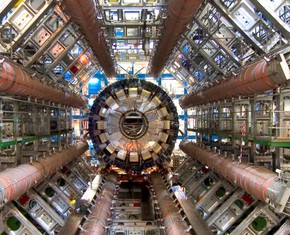The views expressed in our content reflect individual perspectives and do not represent the authoritative views of the Baha'i Faith.
As much as we discussed it, my atheist colleague, Ari, seemed not to understand the point that I, and several other friends who’d become engaged in our dialogue, had tried to make about the human capacity to do science.
We, I told Ari, are the only animals on the planet that do science.
By this, I mean that we don’t just exist within the boundaries of our physical reality and animal instinct, but we have the power to break nature’s codes and then exploit them to give ourselves capacities that we see in other animals.
RELATED: The Science of Religion
We can’t fly like birds, but we want to, so we crack the physics of flight — all the minutiae of aerodynamics, thrust, lift, etc. — and then apply complex mathematics to invent ways we CAN fly. Concurrently, we create both the language and the math by which we can share this information with other humans across a global network that we devised.
We do that over and over while our collective knowledge grows exponentially.
Think of it: I’m typing this using sequences of characters that convey sound units. I am arranging those visualizations of sound units into assemblages that convey not only sound, but specific and nuanced meaning that originates in my mind – and I’m doing it using a big bundle of technologies that I only understand at a fairly basic level, but which other humans know in exhaustive detail.
To me, this constitutes water-is-wet-level evidence that we are not like other animals.
Even a species like the bonobos that are 99.9 percent like us genetically are not 99.9 percent human. We have this additional, fundamental something that the Baha’i teachings call “the rational soul,” which has propelled our progress in the world. Abdu’l-Baha said this is the first faculty of the human being: “How can man believe that which he knows to be opposed to reason? … Reason is the first faculty of man, and the religion of God is in harmony with it.”
This first faculty is one that the Canada goose, for all its inherently calibrated instinct and, enviable wing span and legendary stamina, does not have. The goose knows nothing of the laws of physics that allow it to fly, and doesn’t intellectually comprehend why North is a thing. The human beings who designed and built machines that fly or pioneered the global positioning system (GPS) to direct that flight do comprehend these things.
Most people are familiar with the Infinite Monkey Theorem, which posits that an infinite number of monkeys sitting in front of typewriters would eventually be able to produce the complete works of Shakespeare. This is a statistical device, of course, but I’ve heard it used to support the idea that there’s nothing fundamentally different about the human intellect, for after all, infinite monkeys with infinite typewriters would “almost surely” (a mathematical term used to express the probability of an event) write Shakespeare’s catalogue.
I’ve always supposed this was meant to be humorous; while the monkeys would eventually and randomly type up all of the characters contained in Shakespeare’s works, they would not produce words that were arranged into a story or, more significantly, convey original simian thoughts and ideas.
Herein lies my point to Ari: When Shakespeare put those words together they were not random. They were a coherent creation that arose from the mind and soul of a human being. They not only conveyed meaning to his immediate audience, but they have continued to convey meaning in the centuries since. The result of the infinite monkeys’ work would be meaningless ranks of characters on whatever medium that held them. The result of a human storyteller’s work is the creative content for which ink and pixels are merely a vehicle.
Do you see the difference between the two results and the processes — one random and one directed — that created those outcomes?
When you pick up a published novel, the value of that book is the story within it, not the physical material, the paper, ink, and glue, or the pixels, that contain the story. Moreover, the story does not need the physical book or the electronic file to exist because it existed in the mind of the storyteller long before the physical book was printed.
Maybe because I’m a writer myself, I found this relationship between story and storyteller particularly resonant as a metaphor for God and His creation. I’d like to wax mystical for a moment and share these words of Krishna and Baha’u’llah — words I’ve found especially evocative:
All the visible universe comes from my invisible Being. All beings have their rest in me, but I have not My rest in them, And in truth they rest not in Me. Consider my sacred mystery: I am the source of all beings, I support them all, but I rest not in them. (Bhagavad Gita 9:4)
Veiled in My immemorial being and in the ancient eternity of My essence, I knew My love for thee; therefore I created thee, have engraved on thee Mine image and revealed to thee My beauty. (The Hidden Words)
As a writer, I can say, with Krishna, that the universe of my book comes from an invisible part of my being. My mystery is that I am the source of the beings in my story, but I am not defined by them, nor am I bound by the laws and limitations I created for that book’s universe.
With Baha’u’llah, I can say that before I created that story world, I loved it, and it was that love that brought it into existence and that, in some small way, my characters are a reflection of me.
Of all the animals on this planet, human beings are the only ones that have this capacity for original creation, and for a conscious relationship with what we create. We have the power to build relationships that mirror the one between God and the universe we inhabit.
RELATED: Science and Religion: Can They Work Together?
I am amazed that we aren’t all amazed by that singular difference and curious as to why it exists. It’s as if we’re so immersed in ourselves, we fail to see how unique our place in nature is. Religion has told us since we first began communicating about such things, that it’s because we are endowed with a soul or spirit. We are supernatural in the most literal sense of the word. We are mammals who transcend our physical reality through the use of our intellectual and spiritual capacities.
For ages, scripture has informed us that the evidence of God exists in the universe around us, but most clearly within us. Baha’u’llah wrote that the human intellect was the one thing in creation with the capacity to reflect “… all the attributes and names of God to a degree that no other created being hath excelled or surpassed.”
We are the animal that names things, that deconstructs the universe, that tells stories. Why are we that? It’s a question worth investigating, and the Baha’i teachings urge each and every one of us to embark on that investigation:
Science is the first emanation from God toward man. All created beings embody the potentiality of material perfection, but the power of intellectual investigation and scientific acquisition is a higher virtue specialized to man alone. Other beings and organisms are deprived of this potentiality and attainment. God has created or deposited this love of reality in man. The development and progress of a nation is according to the measure and degree of that nation’s scientific attainments. Through this means its greatness is continually increased, and day by day the welfare and prosperity of its people are assured.
All blessings are divine in origin, but none can be compared with this power of intellectual investigation and research, which is an eternal gift producing fruits of unending delight.
















Comments
Sign in or create an account
Continue with Googleor